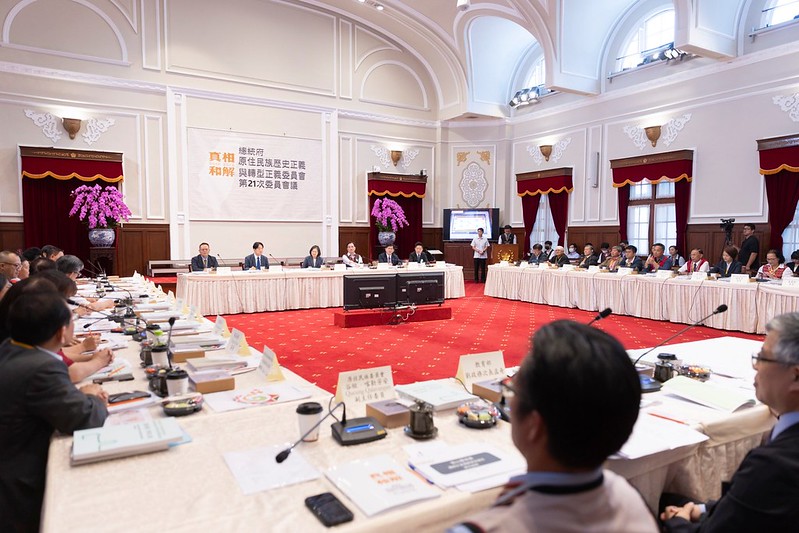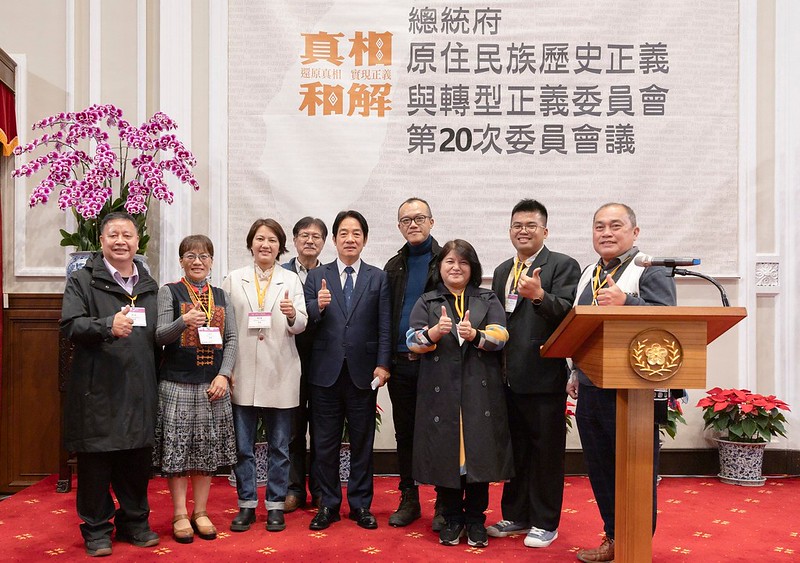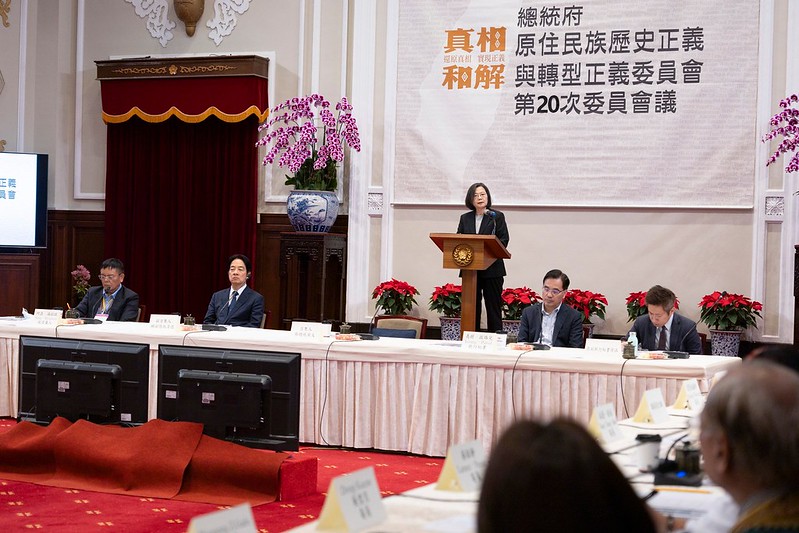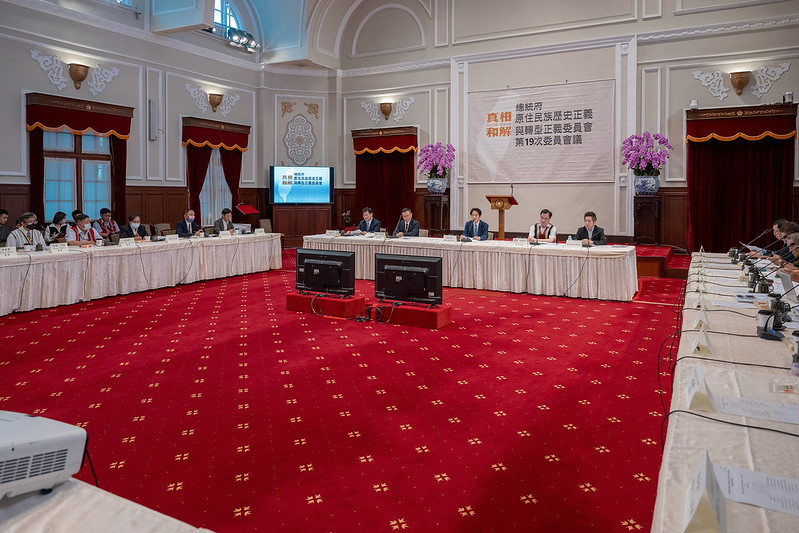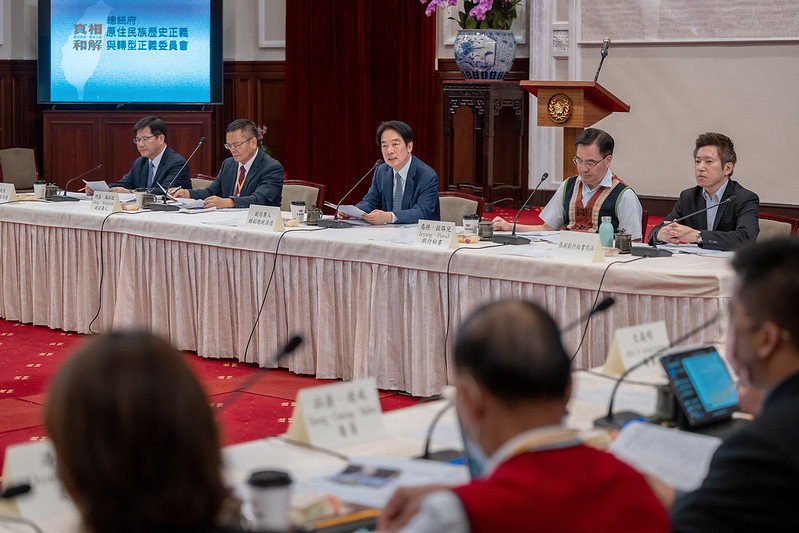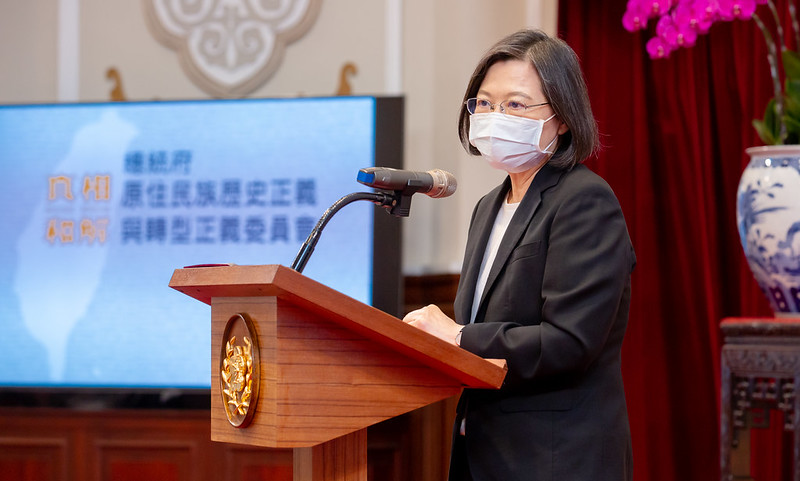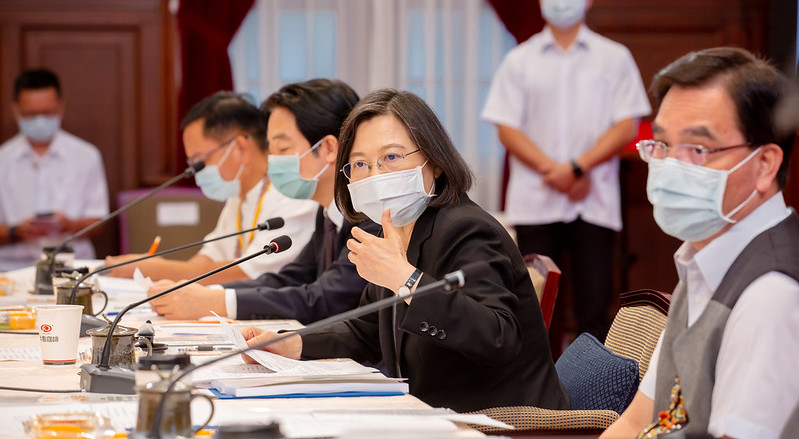News & activities
 News releases
News releases
On the afternoon of September 20, President Tsai Ing-wen convened the 18th meeting of the Presidential Office Indigenous Historical Justice and Transitional Justice Committee. In introductory remarks at the meeting, President Tsai stated that revealing historical truth, constructing a historical narrative from the perspective of indigenous peoples, and engaging in more meaningful social dialogue are the tasks the committee should undertake. Expressing her belief that building an indigenous view of history can enrich the diversity of historical perspectives in Taiwan and advance mutual understanding among different groups in Taiwanese society, the president said that Taiwan's many cultures can flourish and coexist together only once all groups can understand, forgive, and engage in dialogue with one another.
At the beginning of her remarks, President Tsai spoke about the earthquakes that had hit Taitung and Hualien over the past few days, generating ongoing reports of serious damage, and observed that the initial phase of disaster relief and rescue operations would soon give way to the work of resettlement and reconstruction. The president further observed that officials and elected representatives have traveled to the affected areas to survey the damage, understand the needs of indigenous communities and individuals, and learn what the government can do to help.
Noting that many members of the committee are from the Hualien-Taitung area, President Tsai expressed hope that all members and their families stay safe, and called upon them to help monitor the conditions and needs of indigenous peoples in the area, as well as to remind others to remain alert to the possibility of further aftershocks. The president also said she hopes that government authorities at the central and local levels can join together to ensure that indigenous peoples can get back to work and life as normal as soon as possible.
President Tsai stated that through the 18th meeting of the Presidential Office Indigenous Historical Justice and Transitional Justice Committee, we will continue pushing to bring about transitional justice for Taiwan's indigenous peoples. She identified revealing historical truth, constructing a historical narrative from the perspective of indigenous peoples, and engaging in more meaningful social dialogue as the tasks the committee should undertake.
President Tsai recalled that in 2016, when she apologized on behalf of the government to Taiwan's indigenous peoples, she mentioned that Taiwan in the past only had a Han Chinese view of history, and that we only wrote history from the perspective of the dominant group. The president stated that if we are to realize true reconciliation, we must uncover a more complete picture of our history and earnestly face up to that historical truth, and noted that the past five years of collaboration between the Subcommittees on History and Reconciliation have achieved considerable results in this respect. She explained that by looking at history from the view of indigenous peoples as subjects in their own right, we are beginning to comb through and make sense of more historical recollections, and expressed hope that the memories of indigenous peoples can help the Taiwanese people truly understand our history, becoming memories shared by all of us.
President Tsai mentioned that today's agenda includes a report by the Subcommittee on Reconciliation on the status of work on major historical events involving indigenous peoples, which will include updates on a joint project by indigenous peoples and various government agencies to recreate the historic site of the Mudan Incident. Expressing her belief that establishing an indigenous perspective on history can enrich the diversity of historical perspectives in Taiwan and advance mutual understanding among different groups in Taiwanese society, the president said that Taiwan's many cultures can flourish and coexist together only once all groups can understand, forgive, and engage in dialogue with one another.
Pointing to the full agenda for the meeting ahead, President Tsai concluded her introductory remarks by asking the committee members to draw upon the views of their peoples as well as their own personal experiences and insights in providing guidance to the committee and its work.
President Tsai then received a report on the progress of various government agencies in implementing projects related to major historical events involving indigenous peoples.
